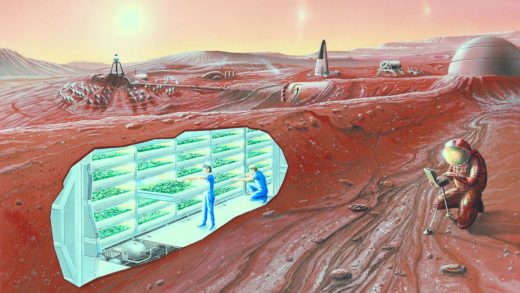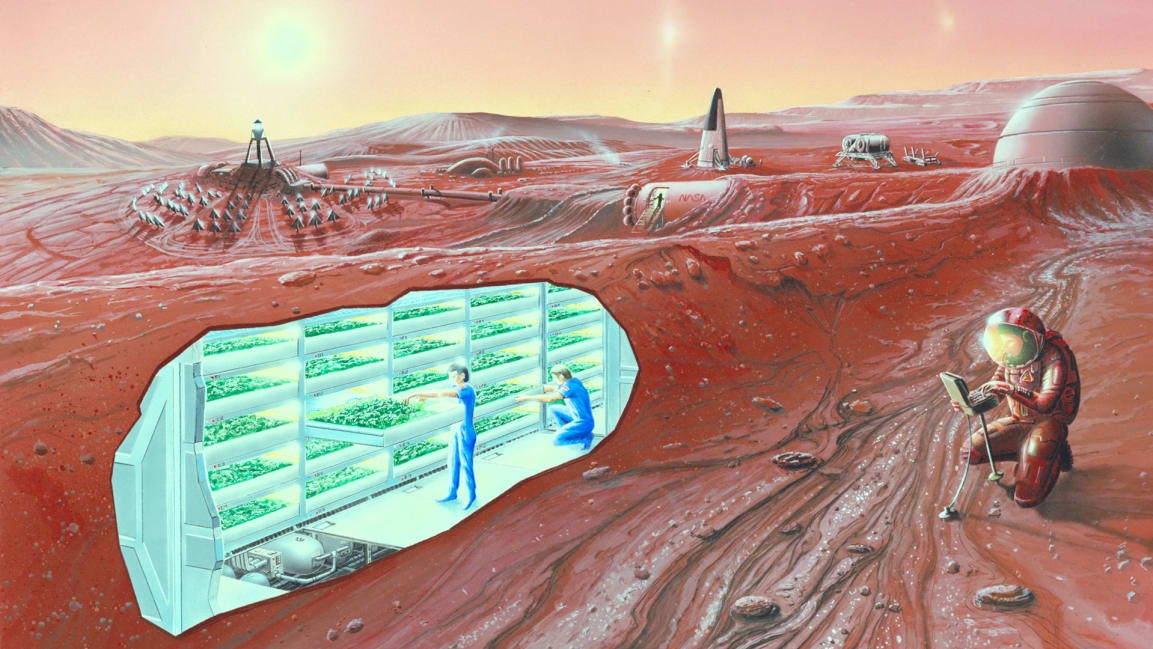The biggest barrier to future space exploration is in our heads
In 1945 British science fiction writer Arthur C. Clarke—now best known for 2001: A Space Odyssey—correctly predicted the invention of satellites, the first of which launched into space in 1958. Then in 1963, Clarke predicted that a man would land on the moon and safely return to Earth sometime around the year 1970—which Neil Armstrong and Buzz Aldrin did in the summer of 1969. In 1973, Clarke predicted a future where humans would be able to monitor outer-space threats such as asteroids and other near-earth objects—NASA established its Near-Earth Object Observations Program in 1998.
Much of what Clarke suggested about our future in outer space, however, has slipped further and further behind schedule in recent years. For example, he predicted commercial space flights by the year 2011 and a manned mission to Mars by 2021. He also spoke of a manned mission to Jupiter by 2099, which experts say looks pretty unlikely at this point.
Clarke was hardly alone in his optimism about what we could accomplish in outer space, and when we might accomplish it. Many others—including experts whose field was science rather than science fiction—have made predictions that we’ve failed, so far, to turn into reality. Why has the trajectory of our reach into space gone so far off course?
The challenges that stand in the way of achieving audacious goals outside the boundaries of Earth are many, including budgetary and technological limitations. But according to the experts who recently gathered to discuss the subject in Germany, the biggest obstacle standing in the way of our progress toward going where no man or woman has gone before is entirely in our heads.
Failure to launch
During the Asgardia Space Congress in Darmstadt, which focused on “paving the road to living in space,” experts from a range of disciplines presented their research into the various challenges that prevent us from living in space today, as well as potential solutions. They included the need for better artificial gravity and life-support systems, as well as a range of biomedical challenges; but the one most agreed would be the biggest barrier to a future in which humanity lives anywhere but its home planet is psychology.
“The hardest barrier to get over is the mindset,” argued Jeffrey Manber, the CEO of Nanoracks, which develops products for and conducts experiments on the International Space Station. “I get up on the planet earth, I work on the planet earth, I play on the planet earth, I go to sleep on the planet earth. Why do I need to do anything elsewhere?”
Manber considers how little progress has been made in the exploration of space since man first landed on the moon “a tragedy of the will of the species, not technical innovation, clearly.” He explains that while the advancement of technology over the 50 years since has been astounding, very little effort has been dedicated to the further exploration of space. “iPhones innovate every year, and yet we’re unable to innovate as quickly in what we do in space,” he says.
Lack of leadership
Canadian astronaut Robert Thirsk, who spent six months aboard the ISS, says this enthusiasm gap is in part due to a lack of leadership. He says the concentration of willpower ushered in by leaders such as President John F. Kennedy in the early 1960s has largely been lost on the generations that followed.
“We had visionary leadership back then,” he said. “We haven’t replicated it since, which has greatly disappointed me.”
Without strong leadership, there’s often little willingness to dedicate the vast resources needed to achieve more progress in outer space, adds Thirk. It’s also hard to unify citizens both within individual nations and across the globe around a common goal without a charismatic personality championing the cause.
“We need a strong, respected leader who is visionary, who is a good communicator, who can motivate world citizens to leave Earth and explore near-earth destinations,” he says. “Someone who has the stature of a Churchill or a Mandela or a Kennedy to energize us. I don’t see anyone out there right now who has that passion and communication ability.”
Are we ready to disconnect from the earth?
While psychological barriers may be preventing us from putting more humans into space, it may also prevent future humans from wanting to stay there. After all, the entirety of human history has taken place on what Carl Sagan called the “pale blue dot.” We don’t yet know the psychological effects of living anywhere else.
When University of Antwerp physics professor Floris Wuyts asked a cosmonaut what the hardest part of going to space was 15 years ago, he was surprised to hear about the feeling of being out of reach. As humans strive to live even further away from their home planet, Wuyts believes this barrier will only become more significant.
“Going into low-earth orbit, you know that if there is something really bad happening, you can go back to Earth,” he says. “If you are on Mars and don’t even recognize Earth among the other stars, that feeling of being so lonely can have a great impact.”
A different vantage point changes everything
That feeling of seeing your home planet in the distance, however, could also prove a solution to these psychological barriers, so long as Earth remains in view. Thirsk says his passion for exploring the universe only grew after taking his first glimpse of Earth from space. “Seeing your home planet from the vantage of the orbital perspective changes you psychologically,” he says.
He’s not alone. “The first time I had the same impression as Bob; it’s an image you never forget,” added Frank De Winne, an astronaut and the head of the European Astronaut Center. “You see the enormous beauty, but also the enormous fragility of our planet in this immense universe.”
It’s only after recognizing the vast scale of the universe and humanity’s tiny place in it that Thirsk and De Winne understood the singularity of human civilization, as well as the fragility of its lone habitat. Thirsk believes that this image could help rally the world around a common cause, adding that the next major milestones in space exploration will require international cooperation. It might also help us get along a little bit better here on Earth.
“No single nation on Earth has the resources or the expertise to explore deep space,” he says. “In these difficult geopolitical times we’re going through today, doing things through international collaboration is a way of promoting world security.”
Fast Company , Read Full Story
(18)



